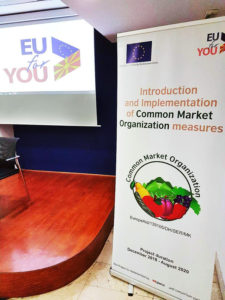
Harmonisation of Kosovo Legislation in the Field of Working Conditions with EU Legislation
Improving the working conditions through the harmonization of legislation in the field of working conditions with EU legislation and increased awareness of relevant stakeholders is vital for employees. Thus, this contract aimed to increase institutional and technical capacity for effectively addressing labour policy issues in Kosovo while providing

EU Support for the Competitiveness of Kosovo’s ICT Sector
This initiative’s overall objective is to enhance the competitiveness of Kosovo’s digital and traditional businesses by supporting the growth of Kosovo’s Information and Communication Technology (ICT) sector, paving the way for growth and new job creation. The project aims to bridge the digital and business skills gap in

Implementation of Common Market Organisations (CMO) in the Former Yugoslav Republic of Macedonia
The project’s overall objective is to increase marketing opportunities, economic development and overall productivity in the agricultural sector of North Macedonia while improving competitiveness of the agriculture sector in the country in line with EU accession requirements.

Support to Development of a Rural Business Information System in Azerbaijan
This project aims to support the development of a Rural Business Information System (RBIS) in Azerbaijan. The project aims to support rural development by increasing public authorities and other agricultural stakeholders’ capacity to collect and provide publicly available, current, and relevant market information and data related to Azerbaijan’s

Improvement of Legislation, Control and Awareness in Food Safety, Animal Health and Welfare in Ukraine
The project aims to support the implementation of the Association Agreement’s provisions between the EU and Ukraine concerning food safety, animal health, and welfare.

Enhancing the Employability of Youth and Unemployed/Low-Skilled Workers, and Improving Their Transition to Employment In Egypt
It can be claimed that advancing the structure and performance of the TVET (Technical and Vocational Education and Training) system and TVET deliveries is essential to better respond to new socio-economic needs, in particular, youth employability and increased competitiveness in the context of the country’s current and future

